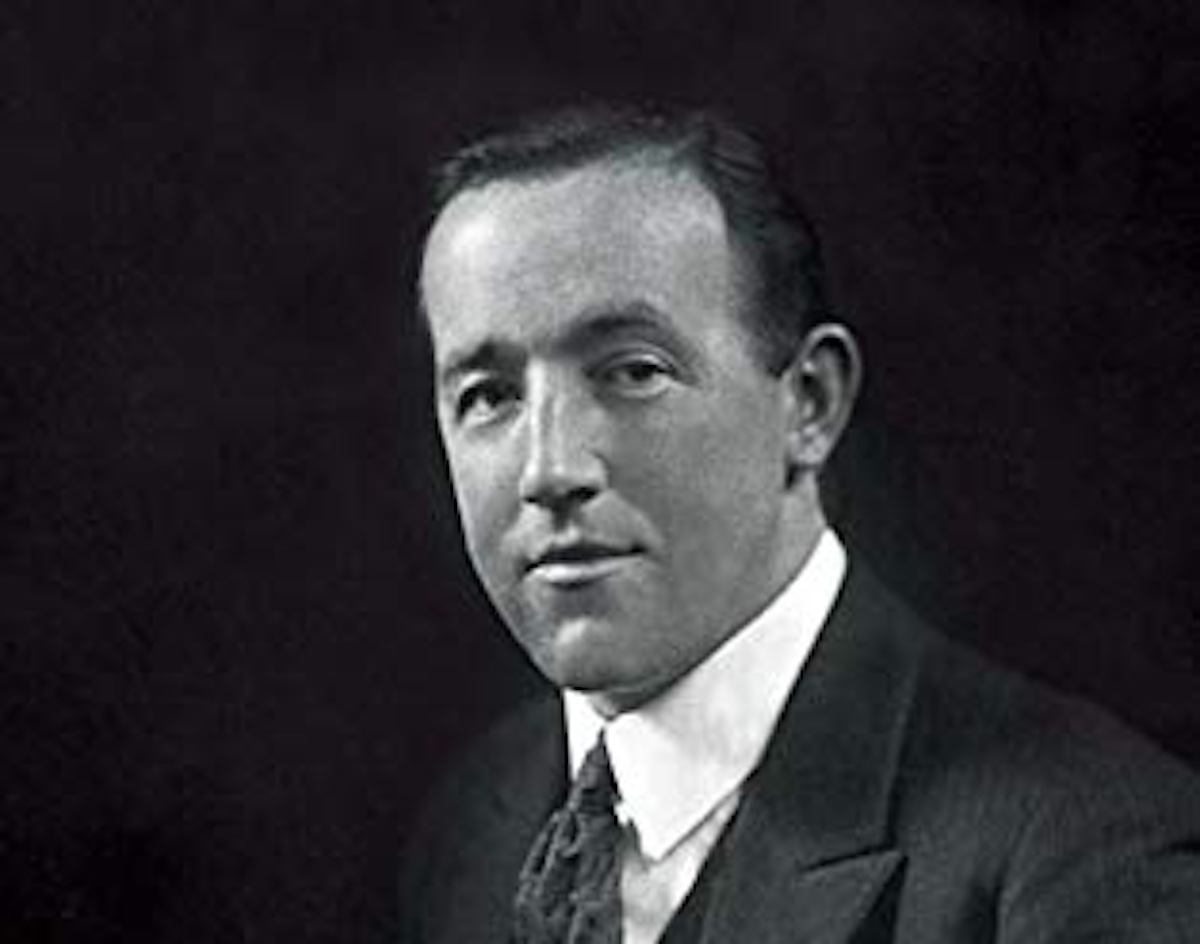
Harry Boland was born, like many nationalist revolutionaries of his generation, into Dublin’s lower middle class, in the northside suburb of Phibsborough. He followed a familiar trajectory through the Irish Republican Brotherhood and the Easter Rising of 1916 into jail at the high security prisons of Dartmoor and Lewes.
On his release he threw himself into political activism with Sinn Féin, for whom he was elected TD for South Roscommon in the historic election of 1918.
In 1919 he and Michael Collins only narrowly escaped arrest when the rest of the members of the underground Dail government were imprisoned by the British. The two worked closely together thereafter in Dublin, raising money for the ‘Republican loan’ a system of voluntary taxation that kept the rebel Republican government afloat.
During the struggle for Independence, Boland worked with both Michael Collins and Eamon de Valera, mainly in raising funds for the Irish Republic. Later in 1919, Boland was nominated by Eamon de Valera the President of the Republic, as special envoy to the United States, a logical extension of his fundraising activities in Ireland.
Boland was from the start adamantly against the Anglo-Irish Treaty which he viewed as surrender of the Irish Republic they had declared. He was recalled from America to participate in the Treaty debates, where he declared, “I rise to speak against this Treaty because, in my opinion, it denies a recognition of the Irish nation…
“I object to it on the ground of principle, and my chief objection is because I am asked to surrender the title of Irishman and accept the title of West Briton. I object because this Treaty denies the sovereignty of the Irish nation, and I stand by the principles I have always held — that the Irish people are by right a free people. I object to this Treaty because it is the very negation of all that for which we have fought.”
The Treaty was carried in the Dail but de Valera and his followers, including Harry Boland, walked out in protest, and in a convention of March 1922, the majority of the IRA the guerrilla army of the Republic, voted to refuse to accept the Treaty. Harry Boland attended the convention as representative of the Dublin Brigade.
Civil War broke out throughout the country in July after Collins’s forces, with the assistance of the British, opened fire on anti-Treaty forces at the Four Courts on June 28.
On August 1, 1922, Boland succumbed to wounds received at the Grand Hotel in Skerries, Co Dublin on July 31 at the hands of pro-Treaty forces.
The circumstances of his death are controversial as he was unarmed when he was shot, with conflicting accounts as to what happened. The pro-Treaty army claimed he attempted to disarm his captors while other accounts state that up to six soldiers were in his room to arrest him, making any attempt by him to disarm them unlikely.
Despite the severity of his wounds, Boland was not brought to hospital but instead was brought to Portobello military barracks where he was held for six hours before he was eventually transferred to St Vincent’s Hospital, then located on St Stephen’s Green.
According to Kathleen Clarke, Boland suffered considerably during his final hours and died “in the most terrible agony. I was present with his mother and sister when he died, and I shall never forget it. His poor mother fainted at the sight of his terrible suffering.”
Writing to Joe McGarrity on August 3, Austin Stack accused the pro-Treaty Provisional government of conducting a policy of “extermination” against republicans opposed to the Treaty: “My God ‘tis terrible. Those fellows are conducting themselves worse than the Black and Tans have ever done. It is a hard thing to say but ‘tis true. The men who stand by the Republican ideal are going to be exterminated if it can be done.”
Stack goes on to accuse the Provisional Government of lacking any democratic mandate and of usurping the Dáil: “So guilty are the consciences of the Free State leaders now that they must be small, mean, cruel and tyrannical. Long ago an English king lost his head for levying war without the consent of Parliament. Today a few men claim the right to usurp Parliament’s authority, attack and slay their brothers with English cannon and armoured cars and other death-dealing weapons-all at the bidding of England’s Prime Minister and of his ‘Colonial’ Secretary, Mr. Churchill.”
Harry Boland was buried in what would become the Republican Plot in Glasnevin cemetery alongside Cathal Brugha as he had requested during his final hours.
![[Irish Republican News]](https://republican-news.org/graphics/title_gifs/rn.gif)
![[Irish Republican News]](https://republican-news.org/graphics/title_gifs/harp.gif)

